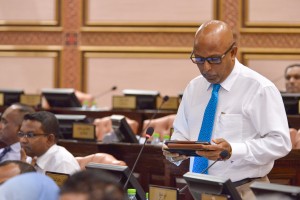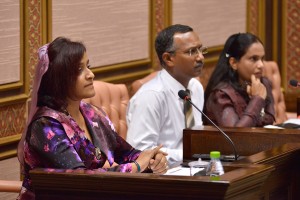This article was originally published on UAE Diplomacy. Republished with permission.
The Maldives is normally known for beautiful beaches and breath-taking blue sea. But these days it also brings up for a highly interesting case study in diplomatic law and contemporary diplomacy. A friend drew my attention to a recent court ruling on a case in which the Indian High Commission in Maldives failed to comply with its contractual duties as per the rent of its mission premises. According to a local newspaper article, the private landlord took the issue to the civil court which, in the first instance, rejected the claim due to a lack of jurisdiction. While this is not surprising, the court’s reasoning is. The Maldivian Civil Court ruled that it could not look into the matter because the Vienna Convention on Diplomatic Relations (VCDR) included immunity for diplomatic missions and diplomatic agents.
Jurisdiction is always a tricky notion as the term itself is not always clear. Sometimes it refers to territory (custody) only, however, most of the time it can be likened to power exercised by a state over persons, property or events. So, when a Court rejects the power of jurisdiction, it is probably that it does not consider itself the correct authority to legislate in respect to the issue of the person, property and event. Referring to the current case, it will mean that the Civil Court has decided that it is not in a position to make a judgement on the President of India, who was acting on behalf of the Republic of India. Generally-speaking, diplomatic missions and personnel enjoy certain privileges and immunities to carry out their duties or for the representation of their government. While diplomatic privileges and immunities have a long tradition, they were codified in 1961 by the Vienna Convention on Diplomatic Relations (VCDR).
The VCDR regulates diplomatic privileges and immunities of diplomatic missions and its agents but has little to say on civil proceedings and matters with private subjects of international law. It primarily regulates aspects of state to state relations but not the relations with international organizations, let alone private entities or individuals. The VCDR touches, for instance, in Article 21 on the obligation of the receiving state to assist in obtaining suitable accommodation (being bought or leased). In Article 23 it states that the head of mission is exempt from dues and taxes in respect of the premises of the mission and through Article 31 the diplomatic agent receives immunity from execution (measures concerning his/her personal inviolability). Interestingly enough, subparagraph 31.4 says that the immunity of a diplomatic agent from the jurisdiction of the receiving state does not exempt him from the jurisdiction of the sending State. In other words, and this is the only connection to the Civil Court’s ruling, without a waiver of immunity, civil proceedings against a diplomat can only be taken in his home country.
Unsatisfied with the Civil Court’s ruling, the private landlord appealed –with quite considerable success. On 21 August, 2013 the High Court ruled in favour of the private, Maldivian landlord. In its judgment the High Court found that ‘Maldivians are not required to follow the VCDR as there is no national legislation enforcing the regulations of the convention’ (see linked newspaper article). This decision is based on the Maldivian Constitution, which stipulates in Article 93 that citizens shall only be required to act in compliance with treaties ratified by the state AND provided for in laws enacted by the parliament.
Now, there are several ways international law can be aligned with domestic law. One way is for the constitution to comment about it in a general way. For instance, the German Constitution provides a hierarchy of law, putting constitutional law first, then provisions of international treaties and then other national or federal regulations. Sometimes, when there exists international conventional law, this can interfere with national laws. As a result, states are required to legislate, meaning that they adapt to international standards or, if the terms of the international convention are not acceptable, the country in question will not ratify the convention (approval by the parliament or any other appropriate legislative body in the country).
In the current case, the Constitution of the Maldives refers a mere 12 times to international law without establishing any kind of hierarchy nor giving any specific hint as to how international law needs to be integrated in relation to national law. The closest it comes to is in Article 93 which states that ‘Maldivian citizens shall only be required to act in compliance with treaties ratified by the state and provided for in laws […].’ In this case, there appears to be an absence of clear national legislation in reference to the Vienna Convention on Diplomatic Relations, which the Maldives ratified back in 2007. Looking at other Commonwealth Nations such as the United Kingdom, we will find the Diplomatic Privileges and Immunities Act of 1964 (the year the VCDR came into effect). This Act regulates the application of the VCDR, going into detail about potential extensions or interpretations of the articles.
While there is obviously a need for national legislation in the Maldives to clarify its position on the provisions of the VCDR, it is arguable whether this convention is relevant, at all, to the current problem. The case we have here is a situation in which a private, Maldivian individual is filing a law suit against the President of India, who was acting in the rental agreement on behalf of the Indian people. However, as stated in its preamble, the VCDR is a convention between states. Therefore, it falls into the category of public international law but has little relevance to private international law. Meanwhile, cases in which private individuals file a law suit against states do occur every now and then, these cases fall into a certain category which is internationally codified, inter alia, under the United Nations Convention on Jurisdictional Immunities of States and Their Property. While this convention was negotiated in 2004, it still has not achieved the necessary minimum number of ratifications in order to come into force. Most developed states have domestic laws regulating state immunities. For example, in the US such a law is called ‘Foreign Sovereign Immunities Act’. It stipulates that foreign governments are immune from suit in the US (state and federal courts) unless the claim falls within certain exceptions. Such exceptions include when a statesperson acts in a private capacity or is engaged in private business activities.
From the above we can draw a number of conclusions. First, the VCDR has little relevance to the case in question. It does not deal with private international law but mainly deals with matters between states and the granting of diplomatic privileges and immunities to its permanent diplomatic missions and personnel. Second, both court rulings are based on interesting justifications due to a lack of national legislation in the field of diplomatic privileges and immunities, as well as regarding the area of state immunity. Building up to this, I would like to take up the cudgels for the Maldivian Courts. While the underlying case shows that the VCDR is partly incomplete and in some detailed aspects antiquated at best, it begs the question, are the courts of a relatively inexperienced and small country such as the Maldives to know about these details? Both courts probably had no independent experts at hand nor would the argued amount of money (US$200,000) justify a very detailed background research. Hence, the lack of clarity of the situation (why the Indian High Commission ended the rental agreement prematurely), and the fact that the High Commission would enjoy diplomatic immunities (inviolability of mission premises, immunity of diplomatic personnel) would have made investigations difficult and tedious. The take away message is that the Maldives might want to look into some vital legislative actions in order to incorporate and align international law with domestic law. This would lead to more transparency and clarity for future rulings.
Kai Bruns is an Associate Professor at the American University in the Emirates. He holds a PhD in the field of Diplomatic Studies – his doctoral thesis focused on the negotiating process leading to the 1961 Vienna Convention on Diplomatic Relations (VCDR).
All comment pieces are the sole view of the author and do not reflect the editorial policy of Minivan News. If you would like to write an opinion piece, please send proposals to [email protected]
Likes (0)Dislikes
(0)Dislikes (0)
(0) 
